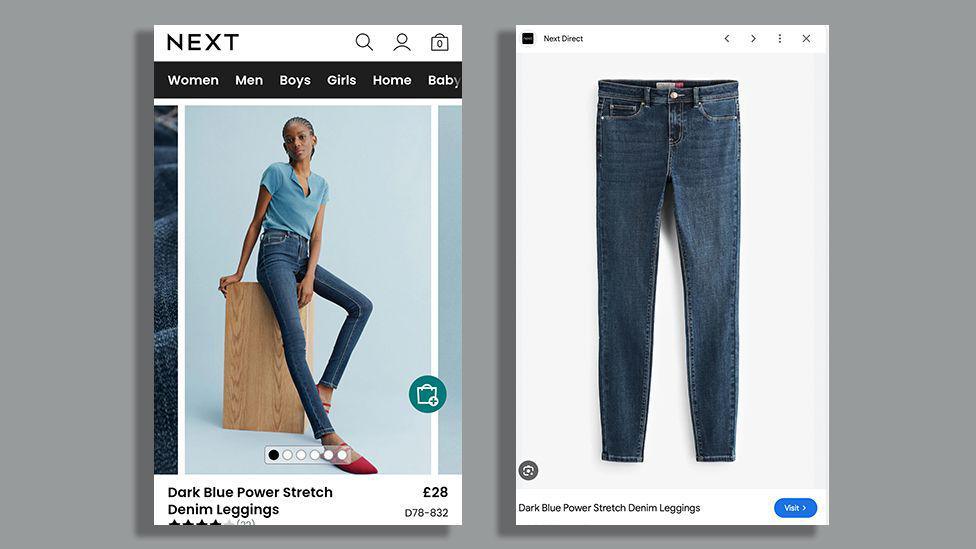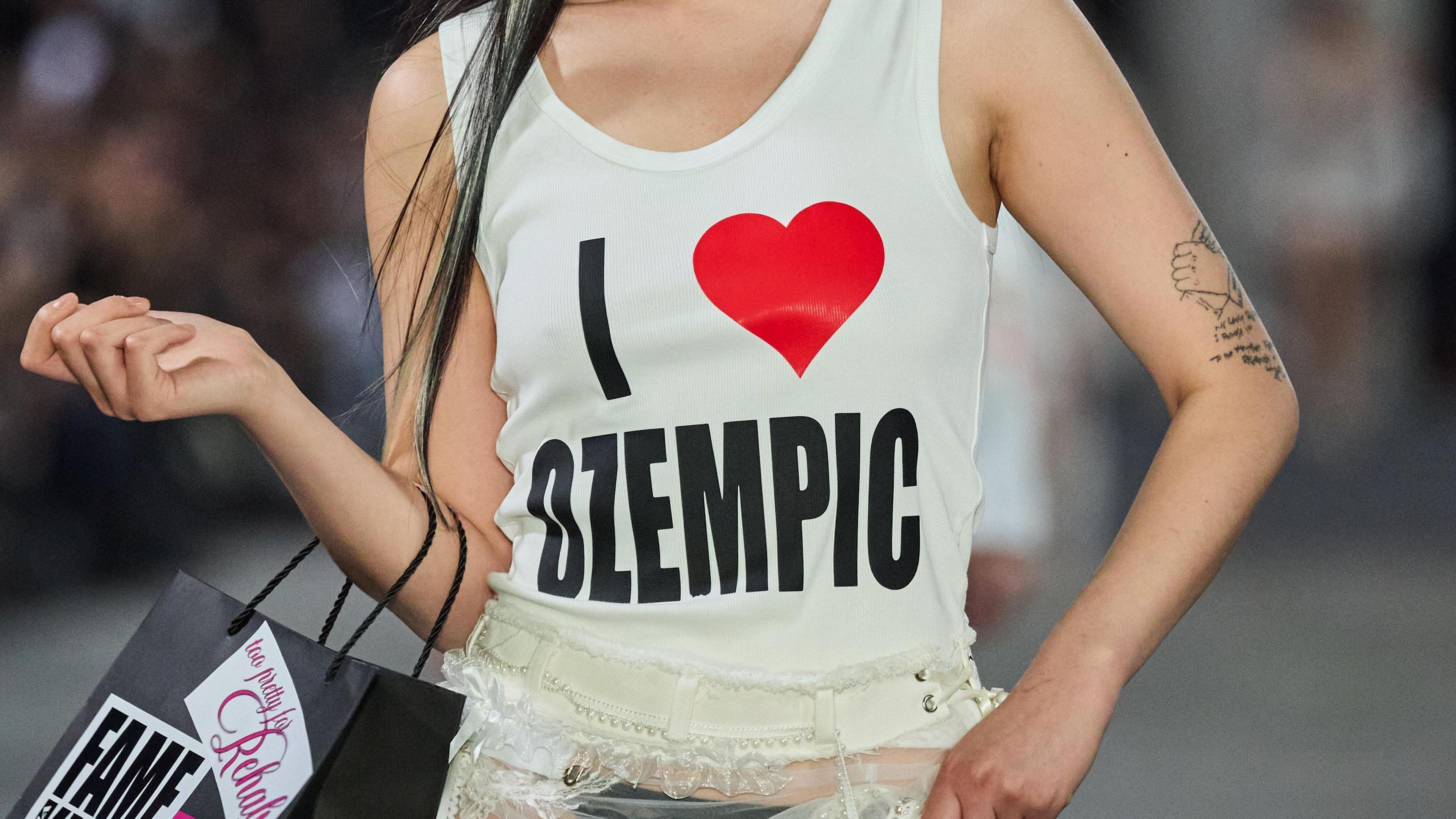Next ad banned as pose made model look too thin

- Published
An advert by fashion brand Next has been banned because the model's pose and the camera angle gave the impression she was "unhealthily thin".
The Advertising Standards Authority (ASA) compared the advert with other photos of the same model and did not think she looked unhealthily thin in those.
But it said in the now-banned image, emphasising the thinness of the model's legs using camera angles, pose and styling was "irresponsible".
Next said it disagreed with the advertising watchdog's decision and said the model, while slim, had a "healthy and toned physique".
In response to the ASA, the retailer said the 5'9" model's pose was chosen "specifically to display the leggings' fit on both straight and bent legs", and that the image, which was shot nearly two years ago, was created with a "strong sense of responsibility".
A spokesperson added a Next stylist and product image manager met the model in person and "did not have any concerns about her health".
In its ruling, the ASA acknowledged the model's face "did not appear to be gaunt and her arms, while slim, did not display any protruding bones".
But it said: "Because the pose, camera angle and styling in the ad investigated strongly emphasised the slimness of the model's legs, we considered that the ad gave the impression that the model was unhealthily thin."
Next said it had not used digital retouching to alter the model's appearance but did digitally alter the appearance of the leggings by bringing them down further towards the model's ankle on both legs.
This was not said to alter the model's natural proportions.
The ASA told Next that its advert breached the code for social responsibility.
It said the ad must not appear again in its current form, and that Next should ensure the images in their ads were "prepared responsibly and did not portray models as being unhealthily thin."
"You do wonder how it got through," fashion journalist Victoria Moss told BBC Breakfast.
"Next are usually very commercial, their models are very 'girl-next-door'. This model has 'the look' of a model," she said, adding however that it was "important not to stigmatise either way".
Body positivity
The ruling comes as there is increased focus on the effects of advertising unrealistic or unhealthy body images on mental health.
The "body positivity" movement which began around 2010 focused particularly on promoting a more diverse range of models.
But Ms Moss told BBC Breakfast she thinks the body positivity movement is "slightly under threat".
"The wider industry is veering towards a very thin model look," she said.
Adding: "With a rise of weight loss injection drugs there's a rise of talk in the media of people taking these drugs and I think that's really pushed this idea of everyone has to be thin much more to the fore again."
She said "bigger girls are simply not being cast" for fashion campaigns and raised concerns over a rise in eating disorders among young women along with more "thinspiration pictures" being posted on social media.
Ms Moss says the use of body positive curve models has certainly declined in the high fashion industry over last few years but it is still unusual to see very thin models used in high street campaigns.
Editorial director of British Vogue previously told the BBC the fashion industry "should be concerned" by a recent trend towards a return of skinnier models.
Chioma Nnadi suggested the change, a departure from recent progress in body diversity, had been partly fuelled by the rise in popularity of weightloss drugs like Ozempic.
In 2023, the ASA banned fashion retailer Warehouse from using an image of a model in an oversized biker jacket, saying the model's pronounced collar bone, hip bones and torso gave the appearance of her being "very thin", which made the ad "irresponsible".
Get in touch
How does fashion advertising influence the way you shop for clothes?
Related topics
- Published1 February
